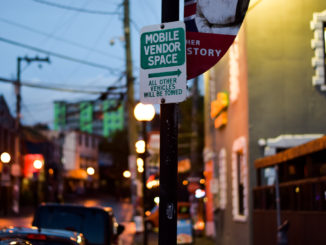Accessibility parking is scarce enough as it is, especially when individuals are illegally using permits to take up spaces.
Emily Lyver
Kicker
Danielle Arbour has been using a wheelchair for about four years, and she isn’t afraid to speak out against those who wrongfully use designated parking spots for mobility issues.
“I’m a very verbal person,” she said. “So if I can see that someone is parked there that is not supposed to be, I’ll go up and make sure that their presence in that spot is known and that they’re not supposed to be there.”
Under the Highway Traffic Act, a mobility impairment is often thought to be a person unable to use, or has significant mobility limitations on, their lower extremities. But it can also sometimes be a person suffering from lung disease, cardiovascular disease, or a person with a visual or other impairment.
Arbour is a left leg, above-the-knee amputee, and says she’s had her wheelchair parking pass for as long as she can remember.
In comparison to others, Arbour says her pass isn’t as crucial to her daily life, but attributes that to her athleticism and ability to push herself further.
“I can speak on behalf of people that I know and it’s super, super crucial that they get a parking spot that is set next to the door … some wheelchairs are a lot bigger than others – if the person is bigger or if it’s a power chair, they take up a whole lot of room. In regular parking spots, cars are on top of each other … and it’s not a whole lot of room to get a wheelchair out.”

From April 2016 to March 2017, a total of 353 tickets were issued for illegal accessibility parking throughout the province, according to the Department of Justice and Public Safety. This includes parking without a valid handicap permit or failure to display the permit while parked in a designated space.
Recently, CBC published an article about the use of parking passes by people who don’t have accessibility issues. According to the article, over 1,300 misused permits were seized last year in Toronto alone.
Michael Burry, executive director for Spinal Cord Injury of Newfoundland and Labrador, says this can be a serious inconvenience for the people who really need these parking spaces.
“The concern is always the capacity,” he said. “When it comes to the parking permits, if somebody is using it when they don’t need to – they’re taking up the spaces that are needed. And it creates accessibility issues for the people that rightfully use these permits.”
While a person accompanying the permit holder is permitted to use the designated spaces, Burry also says it is the responsibility of that person to not abuse the permit.
Controlling the passes has proved difficult, says Burry.
“I don’t know a good way to do it; there has to be checks and accountability, but we still don’t want to make the people that are using these appropriately uncomfortable as well.”
In a recent press release, the province stated fines for parking illegally in a blue zone will be increased to at least $400 and can reach as much as $700. On top of that, van-sized accessible parking spaces will be mandatory and the amount of required accessible parking spaces around buildings will be raised from to six per cent from the previous four per cent.




Be the first to comment